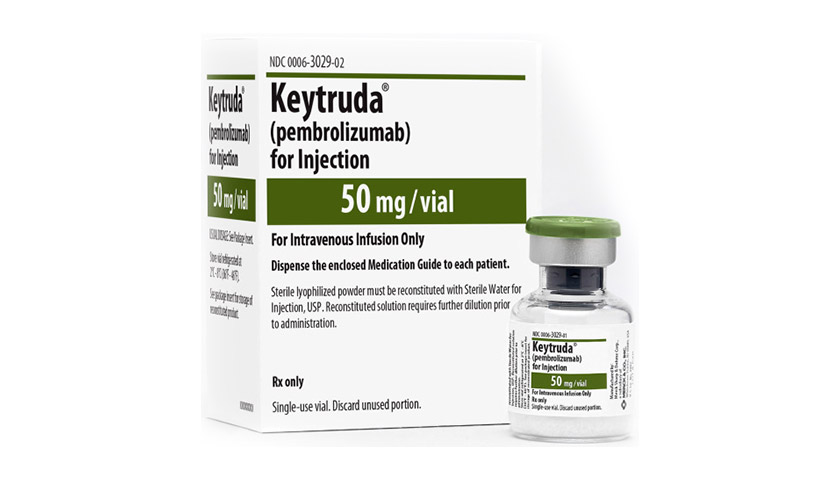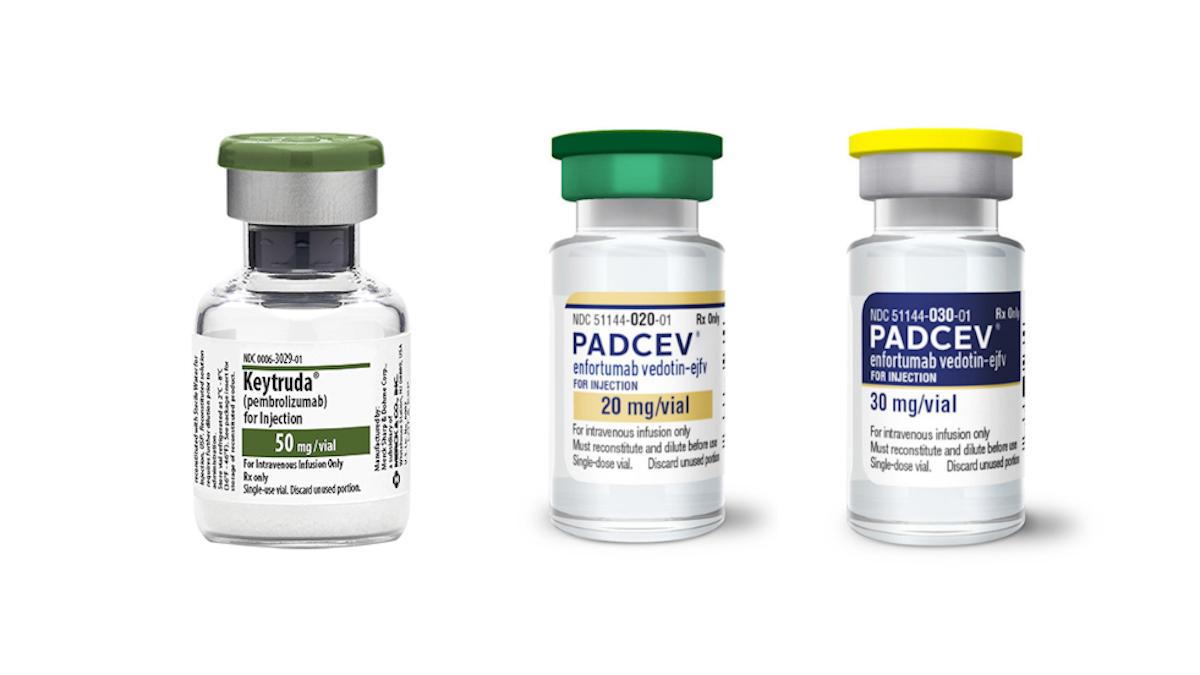New data reinforce Keytruda's dominance in first-line lung cancer

Five-year data with Merck & Co’s Keytruda showing that it doubles survival should help the drug fend off a growing number of contenders to the first-line non-small cell lung cancer (NSCLC) market.
The follow-up results from the phase 3 KEYNOTE-024 trial showed almost a third (31.9%) of patients whose tumours expressed high levels (50% or greater) of the biomarker PD-L1 who were treated with Keytruda (pembrolizumab) were still alive after five years, compared to 16.3% of the chemo group.
Furthermore, the duration of response with the PD-1 checkpoint inhibitor was nearly five times longer at 29 months versus just over six months with frontline chemotherapy.
The new data – presented at this year’s ESMO meeting – reinforce the massive improvement in patient care that Keytruda has achieved in previously-untreated NSCLC, which had a five-year survival rate of just 5% before the drug was approved in 2016.
The new data is a boost to Merck’s franchise just as other drugmakers have started to cast jealous eyes at the lucrative market, which accounts for the bulk of Keytruda’s sales. The drug is approved both as a monotherapy in first-line NSCLC and also got the green light for use in combination with chemo in 2017.
Among those rivals are Bristol-Myers Squibb with its combination of PD-1 inhibitor Opdivo (nivolumab) and CTLA4 inhibitor Yervoy (ipilimumab), which picked up an approval from the FDA last May as a chemo-free option for previously-untreated PD-L1-positive NSCLC patients.
Also in May, Roche’s PD-L1 inhibitor Tecentriq (atezolizumab) claimed approval from the US regulator as a first-line monotherapy for NSCLC with 50% or greater PD-L1 expression.
However, Roche is still playing catch-up with Merck as last year Keytruda had its label expanded in first-line lung cancer to allow its use as monotherapy in patients where 1% or more of tumour cells are expressing PD-L1.
With the wider indication Keytruda can be used without chemotherapy in nearly all the first-line NSCLC population, with adding to the side effect burden through the use of chemo.
Another contender meanwhile also reported new data at ESMO. Regeneron and Sanofi reported results with their PD-1 inhibitor Libtayo (cemiplimab) showing that monotherapy with the drug cut the risk of death by 43% compared with chemo in patients with PD-L1 levels of 50% or more.
With competition building, Merck made much of the long-term data, noting that after five years, 81.4% of patients who completed two years of treatment with Keytruda were alive and nearly half of these patients remained treatment-free.
Commenting on the results, one of the investigators in KEYNOTE-024, Martin Reck of the German Centre of Lung Research, said: “Survival outcomes in these patients with metastatic lung cancer did not seem possible to many oncologists, including myself, several years ago.”












